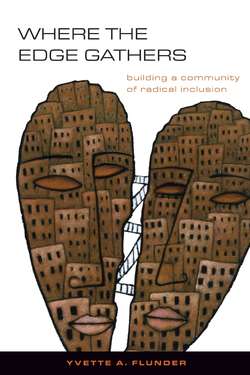Читать книгу Where the Edge Gathers: - Yvette A. Flunder - Страница 13
На сайте Литреса книга снята с продажи.
CULTURAL IDENTITY AND VULNERABILITY
ОглавлениеThere is a concern that must be addressed here and a question that I am often asked. “If we resist the result of oppression sickness that was handed down to us and made us feel rejected by the church and just barely received by God, if we dispel that defeatist thinking, will we retain the atmosphere, style, sound, and feel of the church as we know it?” In my experience, I have found it is quite possible to have the style, sound, and feel of the Metho-Bapti-Costal church without the oppression perpetuated by some in these traditions.
The preaching, the song, and the dance are media through which the Spirit moves; they are ours, and they should remain. God can move through any culture. When Mercy Amba Oduyoye, a Ghanaian womanist theologian, was challenged in a class I took from her about the church in Africa demonstrating too much traditional African spirituality, she said, “The Owner of the church will purify and use it as he sees fit.” It is not necessary to choose between a Spirit-filled oppressive church and a cold, dead, liberated church. Church can be very effervescent and joyful while simultaneously being theologically liberating, justice oriented, culturally appropriate, and inclusive.
Often when someone is introduced to the possibility of being accepted in a Christian community, after being rejected for so long, there is a period of what I call cathartic vulnerability. During this time, people take every opportunity to tell their story, a story that has possibly been bottled up for years. Stories of oppression, fear, guilt, self-hatred, survival, and hope surface. People compare scars. When the stories begin to flow out of one experience to another, and from one person to another, similarities begin to emerge around which people can identify and community forms. Community then is a circle of open huts around a central welcoming table where everyone has a place to come to be healed. There is no more need to put forth a pathetic half-hearted effort to be accepted; an individual’s seat at the table is not given in spite of who they are but because of who they are.
The reality of having a seat at the table and knowing a great deal about each other’s lives, however, does not imply that the community is healthy or that each person’s damage is healed. There are great challenges in the life of a community where people with multiple levels of pain, loss, and crisis come together. The created community must be sustained.
